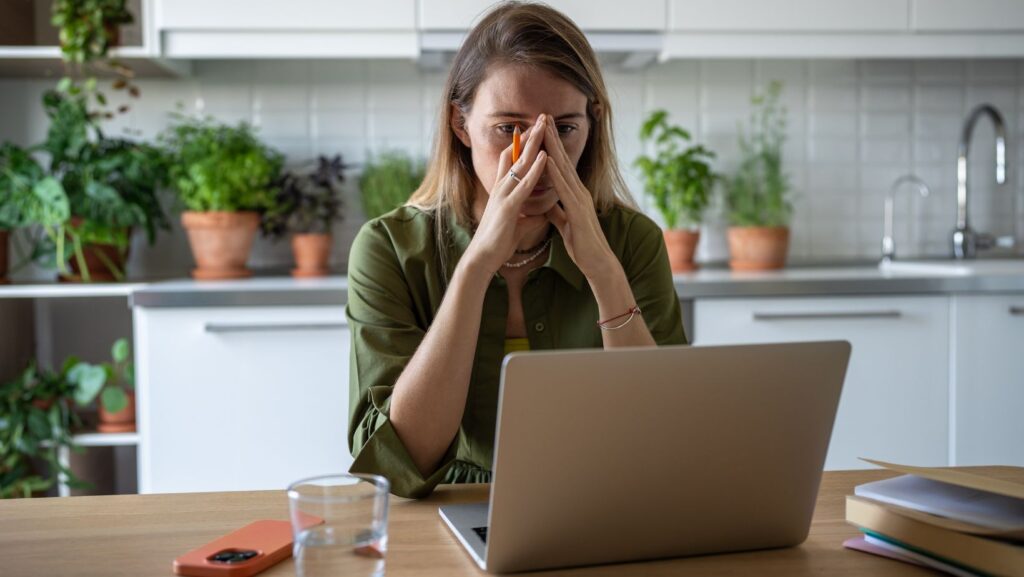In today’s fast-paced world, stress and anxiety have become near-constant companions for many. Whether it’s the pressure to meet deadlines, manage relationships, or navigate an unpredictable economy, these everyday challenges can trigger a chain reaction in the body and mind that’s hard to break. Fortunately, a holistic approach can offer more than just temporary relief. It can help you address the root causes and develop sustainable strategies for long-term well-being.
This article explores practical, research-supported ways to manage stress, improve emotional health, and reclaim balance in your daily life.
Understanding the Anxiety-Stress Cycle
Stress and anxiety are deeply interconnected. When you feel anxious, your brain activates the stress response, which floods your body with stress hormones like cortisol and adrenaline. This can lead to physical symptoms such as increased heart rate, muscle tension, and shallow breathing. These symptoms reinforce anxious feelings and intensify the cycle.
If left unaddressed, chronic stress can seriously impact both mental health and physical health. It may contribute to health conditions like insomnia, digestive issues, high blood pressure, and even depression. That’s why it’s crucial to address stress in a comprehensive and integrative way. It’s not just about temporary relief, but about improving your overall health over time.
Why a Holistic Approach Works
Conventional methods of stress relief often focus on just one dimension of wellness, usually either the body or the mind. However, holistic stress management recognizes that stress is multi-dimensional. It considers how your emotional well-being, lifestyle, environment, relationships, and diet all influence your experience of stress.
A holistic approach uses practices that engage the nervous system, regulate emotions, and support the body’s ability to recover. It also aligns with your unique personality, values, and circumstances. This makes it sustainable and effective in the long run.
Holistic Stress Management
There’s no one-size-fits-all fix for stress, but these natural, easy-to-use tools can help you feel better:
1.) Deep Breathing and Diaphragmatic Breathing
This technique involves breathing slowly and deeply from your diaphragm rather than from your chest. It activates the parasympathetic nervous system, also known as the body’s “rest and digest” mode. This helps lower stress levels, reduce increased heart rate, and calm the mind. Practicing it for just five minutes a day can make a noticeable difference in both how you feel and how you function.
Try this:
- Sit or lie down comfortably
- Place one hand on your chest and the other on your abdomen
- Inhale through your nose for four counts and feel your belly rise
- Exhale slowly through your mouth for six counts
- Repeat for several minutes
2.) Guided Imagery and Visualization
Guided imagery is a relaxation technique that involves imagining calming, peaceful settings such as a quiet beach, a forest, or a mountaintop. This mental escape helps the brain shift away from anxious thinking and promotes a sense of safety and control.
Many people use recordings or mobile apps to support this practice. When combined with deep breathing, it becomes a powerful way to relieve anxiety and reduce stress quickly and effectively.
3.) Progressive Muscle Relaxation
Progressive muscle relaxation is the practice of tensing and relaxing different muscle groups in the body. It helps release physical tension that often comes with stress and anxiety, while also increasing body awareness.
Start with your feet and slowly move upward. Tense each muscle group for a few seconds, then release. This not only helps the body relax but also sends calming signals to the brain, interrupting the stress response.
4.) Daily Movement and Physical Activity
Physical activity stimulates the release of endorphins, which are the brain’s natural mood boosters. It also lowers cortisol levels.
Whether it’s walking, dancing, swimming, or yoga, incorporating movement into your daily routines benefits your mental health, improves sleep quality, and helps you naturally relieve stress.
5.) Nourish Your Body With Whole Foods
The connection between nutrition and mental health is becoming increasingly clear. Consuming a nutrient-dense diet filled with whole foods—like fruits, vegetables, lean proteins, and healthy fats—nourishes the brain and aids in balancing stress hormones.
Avoiding processed foods, sugar, and unhealthy habits like too much caffeine or alcohol can greatly improve how you feel, both emotionally and physically.
6.) Prioritize Sleep and Rest
Without enough sleep, your body’s ability to handle stress decreases. Poor sleep can disrupt mood regulation and slow down physical recovery. On the other hand, good sleep strengthens emotional well-being, memory, and physical health.
Set consistent sleep and wake times. Avoid screens before bed, and develop a calming evening routine. These simple steps can improve sleep quality and support your mental well-being.
7.) Replace Unhealthy Coping With Holistic Habits
It’s easy to reach for short-term fixes like binge-watching shows, overeating, or using substances when stress feels overwhelming. But these habits often lead to more stress and disconnection.
Instead, build holistic habits like journaling, playing music, practicing mindfulness, or spending time in nature. These healthy choices help you address stress directly while improving your emotional health and long-term well-being.
8.) Mindfulness, Meditation, and Self-Care
Mindfulness and meditation help shift your attention away from worry and toward the present moment. These practices can reduce symptoms of anxiety, sharpen focus, and increase relaxation.
Pair these tools with meaningful self-care, such as setting boundaries, soaking in a warm bath, or unplugging from screens. These habits remind your body and brain that you are safe and in control.

9.) Seek Professional Support When Needed
A therapist or counselor can develop a personalized treatment plan. This may include holistic techniques, therapy, or medication depending on your needs.
In some cases, people may face co-occurring conditions, such as anxiety combined with substance use. In such situations, seeking help from a specialized facility like a drug rehab in Pennsylvania can provide comprehensive care that supports both mental health and addiction recovery.
Finding Balance in the Chaos
Learning how to reduce stress and anxiety isn’t about removing every challenge from your life. It’s about building the right tools to face those challenges with strength, clarity, and calm.
When you embrace a holistic approach, you create a toolkit of habits that nurture the mind, support the body, and uplift your spirit. With consistency, you can break the anxiety-stress cycle and rediscover peace.
